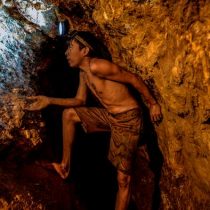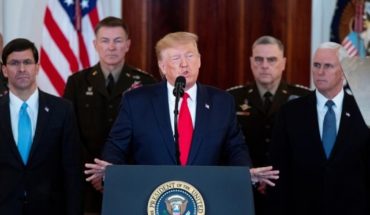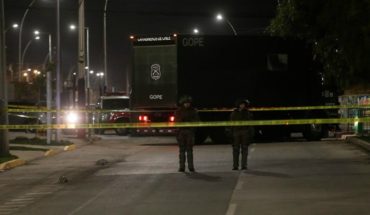
The investigation, presented by THE UN high commissioner for human rights, Michelle Bachelet, points out that miners in the area “are trapped in a widespread context of labour exploitation and high levels of violence” by criminal groups controlling mines in the area, dubbed “unions.”
“Despite the considerable presence of military and security forces in the region, and efforts to address criminal activity, the authorities have been unable to investigate and prosecute violations of mining-related human rights, abuses and crimes,” Bachelet stressed.
The report indicates that these “unions” apply cruel punishments to those who violate the rules they impose and make economic benefits from all activities in mining areas, including by resorting to extortion practices in exchange for protection.
They maintain their illegal activities and their control of the area, where they decide who can enter or exit, through a system of corruption and bribery that includes payments to military commanders, the document adds. It also details the poor living conditions of many of the miners, mostly from other Venezuelan regions and pushed to emigrate because of the economic crisis in the country.
Criminal groups subject residents and workers in the region
They work in 12-hour shifts, descending to the wells without any protection, and are required to pay between 10 and 20% of what they get to criminal groups, which must be added up to 30% for the owners of mills where the rocks are crushed to extract minerals.
The Orinoco Mining Arch, located in the center of the country and distributed between the states of Bolivar, Amazonas and Delta Amacuro, has according to the studies with at least 7,000 tons in gold reserves, copper, diamond, coltan, iron, bauxite and other minerals.
Miners there live in areas without running water, electricity or health services, where there has been an increase in malaria cases not only among immigrants but also in local indigenous communities. These native inhabitants and miners have also suffered cases of mercury poisoning, an element used to separate gold from other minerals, highly toxic and polluting both through the gases generated by the separation process and by leaks to the soil and rivers in the area.
The report also reports that children, some under the age of ten, also work in the mines, and that since 2016 there has been a sharp increase in prostitution and sexual exploitation of women, including adolescents, in the area since 2016.
Amputate hands as in religious dictatorial regimes
The 149 deaths collected in the report, recorded over the past four years, were the result of disputes over control of the mines or punishments imposed by criminal groups, including beatings, hand amputations or even murders. Some of the bodies of reprised workers were thrown into former mining wells, reporting the investigation, which indicates that in some cases security forces were implicated in violent incidents.
Bachelet called on the Venezuelan authorities to take steps to end labour and sexual exploitation, dismantle the criminal groups that control mining activities, and punish those responsible for human rights violations. Although today’s report to the council focused on the situation in the mining arc, it also reviewed other human rights situations in Venezuela, for example in its justice system, which according to the document has been impaired by pressure on the judiciary and political interference.
The ability of the judiciary to act independently to protect human rights has been severely affected and is contributing to impunity, the report denounced.
The difficulties for the Public Prosecutor’s Office to investigate human rights violations are particularly evident in the case of murders perpetrated during protests, security forces operations, allegations of torture and gender-based violence, he stresses. “I call on the Venezuelan Government to undertake and complete the reforms announced to the justice system to ensure its independence and impartiality, to stop the use of military justice to try civilians, and to fulfil its obligation to investigate any allegations of torturto and ill-treatment, ” concluded Bachelet.





